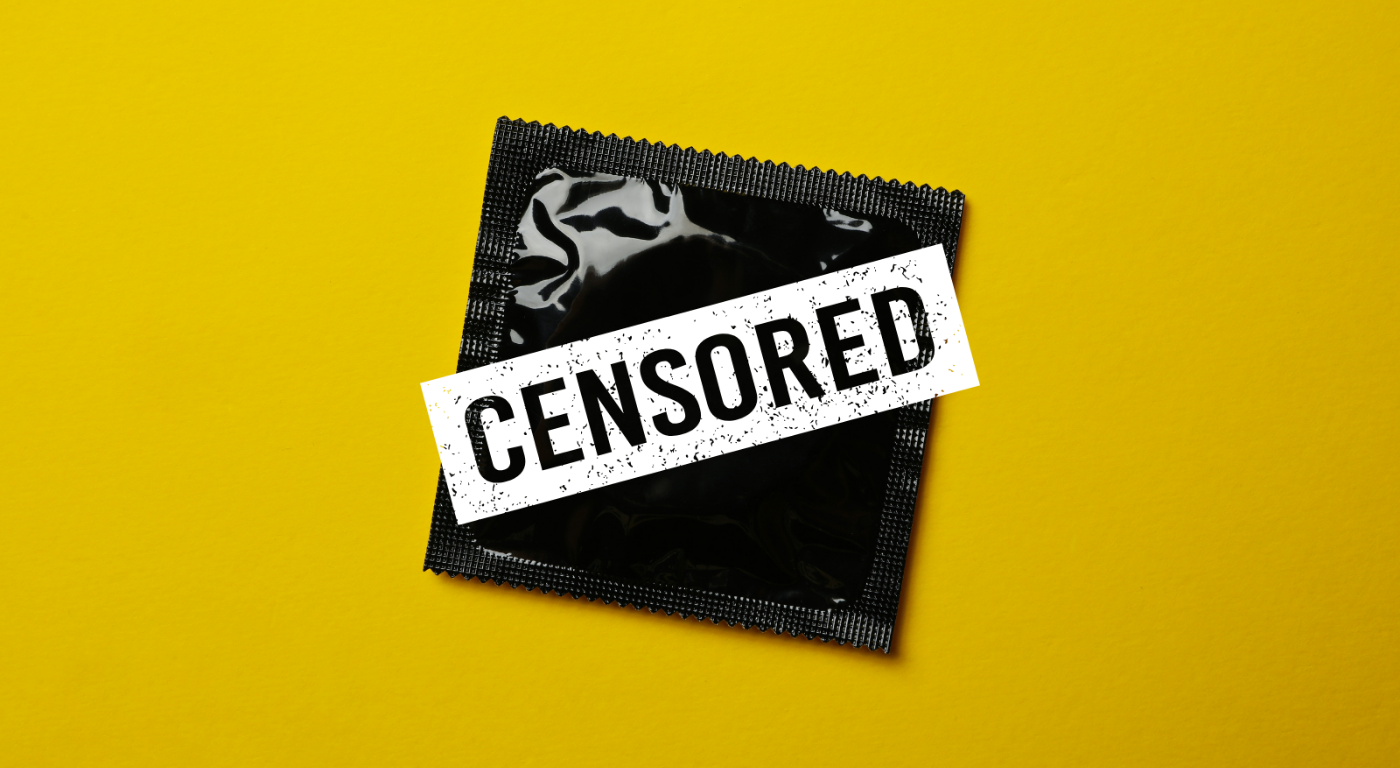|
Social media is increasingly censoring content about sex education and sexual rights. This can be disheartening—and even downright scary—for folks who rely on these communication platforms to reach our audiences. The social media landscape is constantly changing, and what might have been fine a few years ago could now get your account flagged, or even deleted. Why is social media censorship getting worse?In 2018, new bills called FOSTA/SESTA were passed in the U.S., which purported to be aimed at shutting down websites that enable sex trafficking. In reality, these laws severely restrict online discussions of sexuality—including sexual health and reproductive rights. Because these laws make websites legally responsible for the user-posted content, many risk-averse sites have responded by overregulating user content, particularly any content that discusses sexuality, which means massive amounts of censorship. (These laws also have the unfortunate effect of preventing sex workers from being able to discuss safety tips and blacklists of bad clients online, ironically making people more vulnerable to trafficking and other harm.) Here are 8 tips for navigating social media censorship:1. Share more audio/video and less image posts on social media.
Audio and video (including reels) are less scanned than still images and text. With the current rate of AI censorship, even having the word “sex” in an image can be picked up to censor a post. 2. Save your spicier content for patrons. Patreon is less censored than most social media sites. Consider reserving your spicier content for Patreon members, and sharing teasers on Instagram, Twitter, Facebook, etc. 3. Rely more on email. Since email is considered a direct form of communication, it isn’t normally subject to censorship. However, emails with sexual content do run the risk of being marked as spam or phishing. One way to prevent this is to ask everyone who signs up for your newsletter to add your email to their address book. Email also has the added perk of generally having a higher “conversion rate” than social media. This means that people are more likely to attend your class, buy your book, read your article, donate to your fundraiser, etc. than people who see those same action items on your social media. Still in the early stages of growing your email list? My number one tip for building an email list is to make sure that your emails are actually valuable to people! For instance, Pleasure Pie puts out a monthly email called Boston’s Sex-Positive Newsletter, which lists around thirty sexuality-related events in the Boston area each month. It also includes a list of about a dozen job openings in the sexuality field, as well as reading recommendations, calls for submissions, and free local resources. Since this content is useful to our community, people regularly sign up and share the email with their networks. 4. Never underestimate how powerful in-person conversations can be! Face-to-face conversations are one of the most underrated ways of communicating in the modern world. Word of mouth has always been a fantastic form of marketing and education, and that is just as true today as it was pre-internet. 5. Use print materials (like zines!) for uncensored education. Printing your own physical, offline media is a great way to dodge online censorship. You can put anything you want in a zine! Who’s going to stop you? (You can find zine making instructions in our How To Make a Sex-Positive Zine zine.) The same goes for a flyer campaign, self-published book, or any other DIY form of print media. 6. Get clear on each app's community guidelines. Some of them aren't as straightforward as you might think! For instance, we all know that Instagram doesn't allow explicit sexual photos. But did you know that they don't allow “implied sexual activity” either? Here are Instagram's community guidelines, which link to this page with more information about what they mean by nudity and sexual activity. Instagram does not allow:
So far, most of my run-ins with censorship have been on Instagram, but I recommend learning about the guidelines for any other social media sites you use as well. 7. Avoid using divisive hashtags. Oftentimes, accounts get taken down because they are reported as inappropriate by users. Some users go through hashtags that they are ideologically opposed to (like pro-choice hashtags, for instance) and report all of the recent posts that use that hashtag. While hashtags can be a useful way to get your posts seen, I recommend being cautious about which ones you use. 8. Learn the best practices for recovering your account if it’s taken down. Here’s the form that I’ve had the best luck with for getting Instagram accounts back: My Instagram Account Was Deactivated appeal form. I’ve had success with using the following parameters for the appeal note:
More resources for appealing a deactivated account:
Bonus tip: Take action against censorship! Tell Congress to say no to bad internet bills, including KOSA, which would increase the censorship of LGBTQ resources and sex education online. You can contact Congress using this form. Best of luck out there! I hope that this is helpful and that you are able to find effective and reliable ways to get your sex-positive content to the world. Comments are closed.
|

